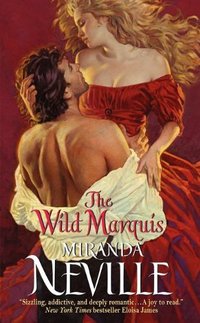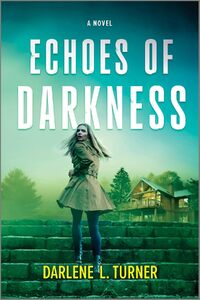

Purchase
Secrets Of A Soprano, April 2016
Paperback / e-Book
Christmas in Duke Street, October 2015
e-Book
Dancing in the Duke's Arms, July 2015
Paperback / e-Book
The Duke of Dark Desires, January 2015
Hardcover / e-Book
At the Billionaire's Wedding, November 2014
e-Book
Christmas in the Duke's Arms, October 2014
e-Book
Lady Windermere's Lover, June 2014
Paperback / e-Book
The Ruin of a Rogue, September 2013
Mass Market Paperback / e-Book
At The Duke's Wedding, June 2013
e-Book
The Importance Of Being Wicked, December 2012
Paperback / e-Book
The Second Seduction of a Lady, October 2012
e-Book
Confessions from an Arranged Marriage, April 2012
Paperback / e-Book
The Amorous Education of Celia Seaton, August 2011
Paperback / e-Book
The Dangerous Viscount, October 2010
Paperback / e-Book
The Wild Marquis, March 2010
Mass Market Paperback / e-Book
Never Resist Temptation, March 2009
Mass Market Paperback
The Burgundy Club #1
Avon
March 2010
On Sale: March 9, 2010
Featuring: Cain, Marquis of Chase; Juliana Merton
384 pages
ISBN: 0061808709
EAN: 9780061808708
Kindle: B00395ZYU4
Mass Market Paperback / e-Book
Add to Wish List
Romance Historical
The Marquis of Chase is not a reputable man.
He is notorious for his wretched morals and is never
received in respectable houses. The ladies of the ton would
never allow him in their drawing rooms . . . though they
were more than willing to welcome him into their
bedchambers. Ejected from his father's house at the age of
sixteen, he now lives a life of wanton pleasure. So what
could the Marquis of Chase possibly want with Juliana
Merton, a lovely, perfectly upstanding shopkeeper with a
mysterious past?
A moment's indiscretion?
A night's passion?
Or a lifetime of love?
Even the wildest rakes have their weaknesses . . .
Burgundy Club
Comments
16 comments posted.
Re: The Wild Marquis
No comments. I heard this wasn't working
(Miranda Neville 12:42pm March 9, 2010)
Hi, I've been trying to come up with a story with happy parents on both the hero and heroine lines and the only ones I know are some of the JAK books -- but usually one of the fathers is dead.
Oh, maybe a Mary Balogh?
(Sally Mae 1:25pm March 9, 2010)
It's funny I'd always realized that most
romances had family problems, but I'd
never realized how rare the happy
family is.
In Historicals you also have to have
killed off the father in order for your
hero to have the title. My current hero
had a very happy family, but poor old
dad had to die so that he could be the
duke.
Ah well -- maybe next time.
(Lavinia Klein 1:30pm March 9, 2010)
Woo-hoo - finally got in to make a comment. Miranda, when I went back to university a decade ago, I learned the orphan was a popular device in late 18th century & 19th century novels. Interesting that it's still popular. I've a feeling many writers do the orphan thing to keep from having a cast of thousands. :-)
(Vicky Dreiling 1:36pm March 9, 2010)
Sally: it's really hard, isn't it?
Good point about the title, Lavinia. Also, perhaps the existence of a powerful father figure can make the hero seem weaker.
Vicky. I'm so glad you persevered. It's so true that literature is full of orphans. Imagine Dickens if everyone had parents?
(Miranda Neville 3:12pm March 9, 2010)
Happy Release Day, Miranda. Can't think of any books off the top of my head where there were four nice parents between the couple, but Stephanie Laurens' Cynster series features some great parents. Orphans are appealing because you just can't not root for them.
(Jane Cheung 3:56pm March 9, 2010)
I thought my heroine had a happy family, but found quite recently she's adopted. Her real parents were killed in a boating accident when she was four. I had no idea - she's very well adjusted.
(Jennifer Carroll 5:44pm March 9, 2010)
Jennifer, you gotta love those handy accidents. How interesting that it came to you out of the blue
(Miranda Neville 6:07pm March 9, 2010)
Happy families are all alike. every unhappy family is unhappy in its own way.--Tolstoy.
If the parent isn't causing conflict they may well be detracting from it by giving the main characters too much support so they don't suffer and struggle and drive the plot forward.
There's always the silly parent, a la Pride & Prejudice, too. But Darcy is an orphan. With parents he'd seem so much less alpha. Plus he wouldn't have inherited!
(Jenny Brown 7:27pm March 9, 2010)
Orphans don't come with strings attached - not as much. That's the appeal.
(Mary Preston 2:21am March 10, 2010)
I can't think of any books that have four sets of nice parents between the couple. Always conflict! Funny, I had never thought about that.
No one has a brady bunch family!
(Brenda Rupp 8:41pm March 10, 2010)
Four living and loving parents? That excapes me at the moment. If I can think of one later, I will return and post it. Right now I am burning the midnight oil. LOL
(Gladys Paradowski 11:36pm March 10, 2010)
I don't really pay that much attention to the family of the characters in books unless it really impacts the story. In the one I'm currently reading, the heroine seems to have parents she loves but is not unduly attached to, but her brother has been recently killed. The hero has been an orphan since he was 9, but he has been raised by a guardian who knew his parents.
I may have been somewhat irritated with my 3 younger siblings when I was young, but I became a second "mother" to the two youngest and have never really regretted that. And my parents were generally kind and supportive. I think I'll be paying better attention to family matters from now on.
(Sigrun Schulz 1:25am March 11, 2010)
P.S. I've put a "hold" on one of the library books.
(Sigrun Schulz 1:27am March 11, 2010)
Thank you for your post, Miranda. I think romance protagonists are often orphans for two reasons.
One, they're on their own. They must overcome their problems with no support from their parents, the very people who are supposed to help their children no matter what. This makes for a more difficult struggle, and a sweeter victory. Both factors lend themselves to greater emotional involvement on the part of the readers.
Two, in a genre in which connections between people matter, and the importance of family is a given, an orphan has a great sense of something missing. The parent-child bond has been broken by death. Implicitly or explicitly, the reader understands that this character must form another type of close personal bond, namely a romantic relationship. The need is so pressing that this character will go to greater pains and overcome more daunting obstacles than otherwise.
Of course, in real life I doubt this holds true. What makes a person put forth heroic efforts for the sake of love most likely has nothing to do with whether or not one has living parents.
Still, it's an effective literary device. And a popular one, seeing how often it's used.
Thanks again for bring up this thought-provoking topic. Good luck with your new release, and keep up the good work!
(Mary Anne Landers 1:44am March 11, 2010)
Hi Sigrun and Mary Anne. Excellent thoughtful answers. Still no sign of a four-good-parent romance. It seems to be a very rare bird.
I do like Mary Anne's theory that the loss of the parent-child bond intensifies the need for love. Works for me (at least, as you say, in books)
(Miranda Neville 7:55am March 11, 2010)
Registered users may leave comments.
Log in or register now!
| 


 © 2003-2025 off-the-edge.net
all rights reserved Privacy Policy
© 2003-2025 off-the-edge.net
all rights reserved Privacy Policy